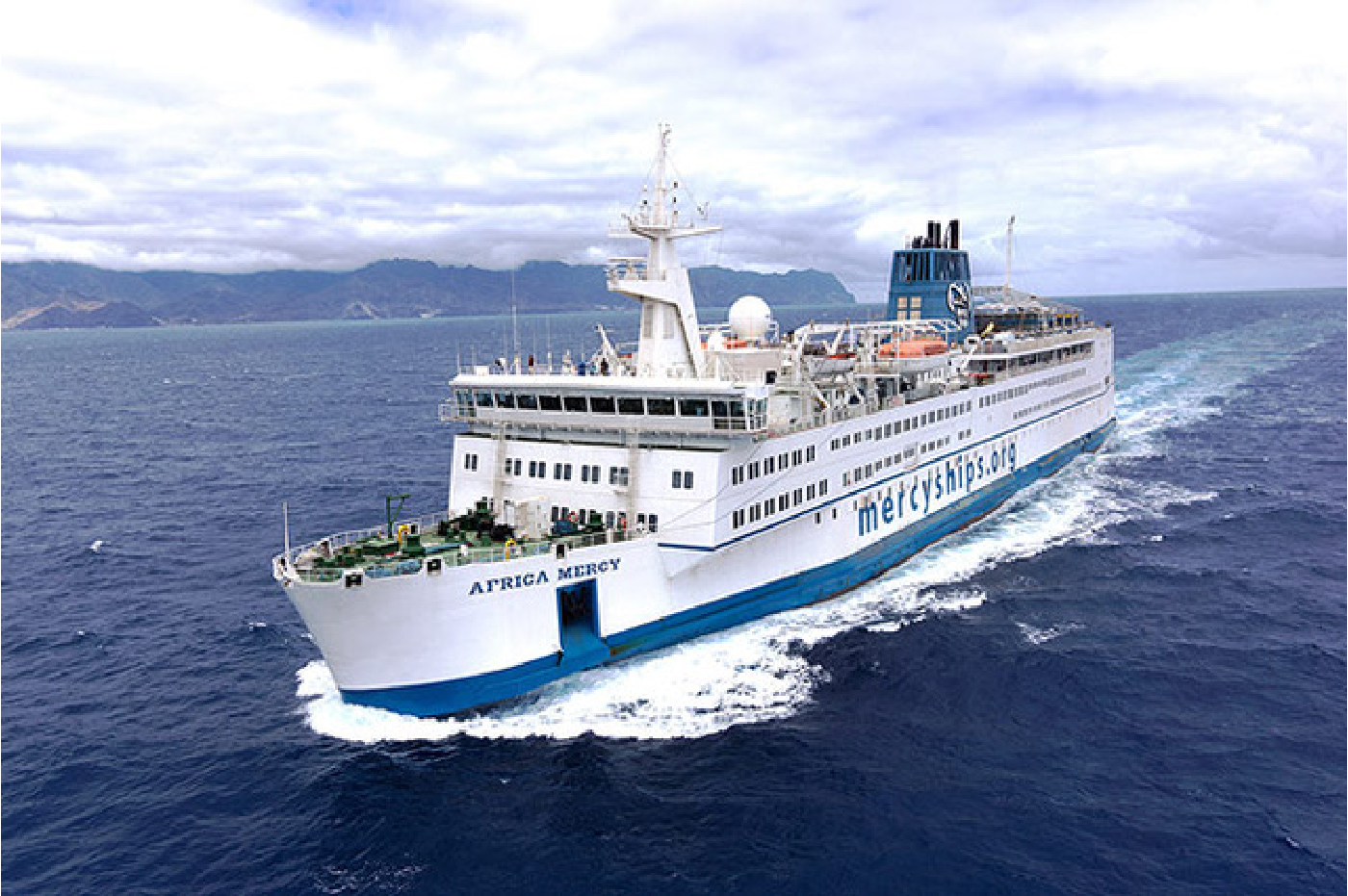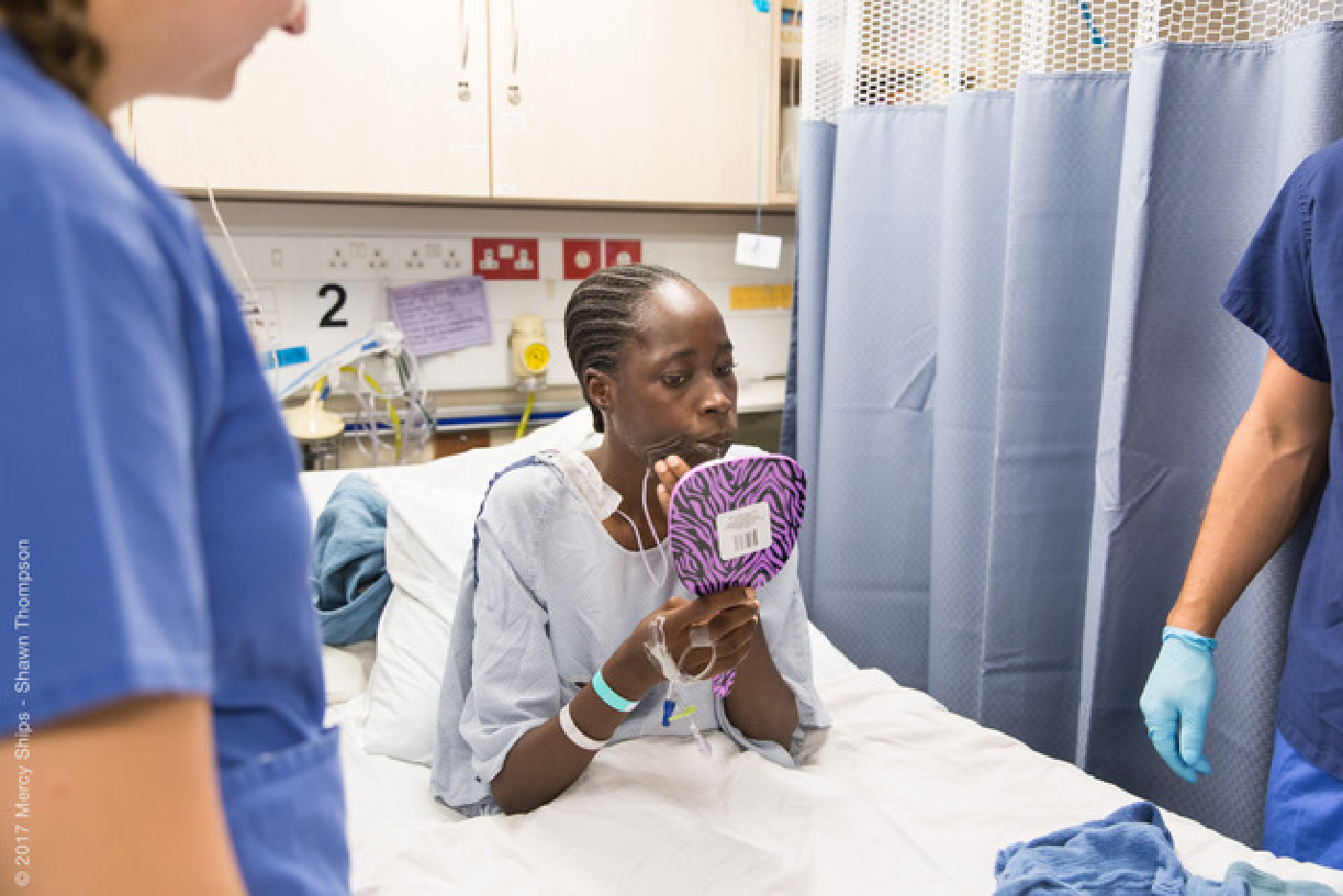Mercy Ships is an organization that follows the 2,000-year-old model of Jesus, bringing hope and healing to the forgotten poor. It has the largest non-governmental hospital ship called the Africa Mercy. The ship has six operating rooms and 80 hospital beds, with enough space to have roughly 450 crewmembers living on ship. Every year the ship stops in a nation, typically in West Africa, to serve for 10 months before going to the next one. They perform surgeries like cleft palate and cleft lip repair, tumor removals, orthopedics, plastics, burn contracture releases, obstetrical fistula repairs, ophthalmic, and dentistry. They also aim to improve the infrastructure, and do medical capacity building to help leave the country more independent and prepared. Volunteers from all around the world pay for their own way to travel to the ship and for their own crew fees that cover housing/meals. Some serve two weeks, two months, two years, or over two decades. There are singles, couples, families, and over 40 children attending the Mercy Ships Academy onboard.

Mercyships.org
So why would one consider making the sacrifice of volunteering their time and money to work on a ship so far from home? There are many reasons individually, but what makes the ship and my experience so special has been seeing the love that people have for what they do and love for serving people in need. It is like no other hospital I have ever been in. First of all, it is a ship! But other than this obvious fact, the culture of happiness, joy, and healing are present daily on the wards. People volunteer to do every job it takes to run a hospital ship. All the nurses, doctors, and surgeons volunteer. Oftentimes, they get the spotlight, but really it is all the other jobs that make a hospital function, such as housekeeping, engineering, pharmacy, lab, IT, crew galley, and engine staff that keep the ship running smoothly. And volunteers staff every one of those jobs. It really makes for an amazing group of people who all share the same common goal humbly work and help people in need.
My two months was spent working as a ward nurse on the maxillofacial post-op unit. And in those two months, I built amazing friendships with people from all over the world; some I will truly miss. Some I know I will likely never see again, including Yaya.

Mercyships.org
Yaya was one of my many patients, but was so memorable for her character and happy attitude. She spoke a local dialect called “Fulfude,” so it was a challenge communicating with her as it took two translators – English to French, then French to Fulfude. But even then we still were able to make a connection. I was primarily taking care of her after her second surgery where they took a piece of her iliac crest to do a bone graft to her new jaw where they had already removed the tumor and placed titanium hardware. She was soft spoken, but behind her quiet character was someone who laughed and goofed around with me all the time. I remember using the utility elevator in the ship for the first time. I didn’t know how to open the door once we were inside to let us out. Yaya was having a wondrous time laughing at my inability to get us out of the metal box. She was soaking the gauze dressings under her chin from all the uncontrollable laughter and drool. It wasn’t my proudest moment, but definitely a memorable one I really cherish.